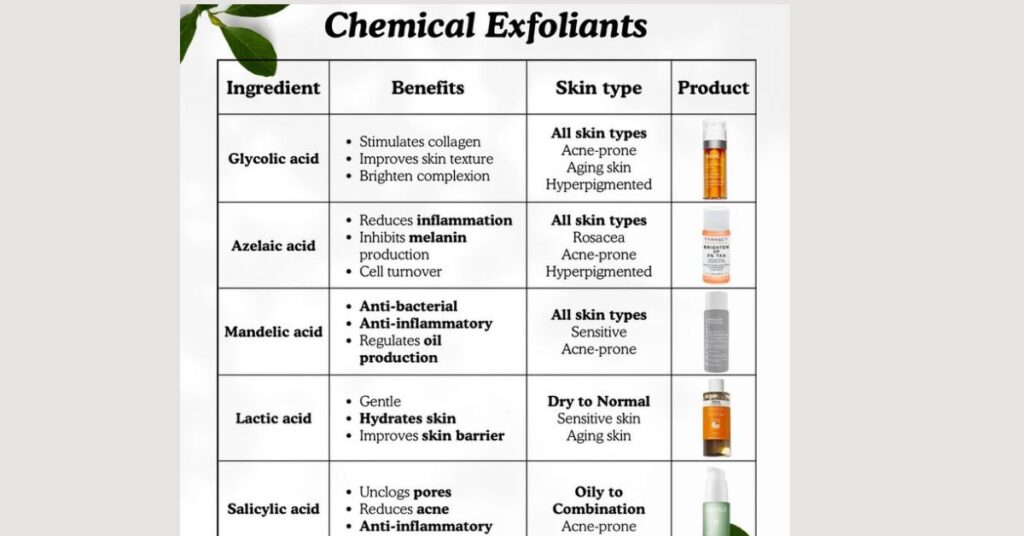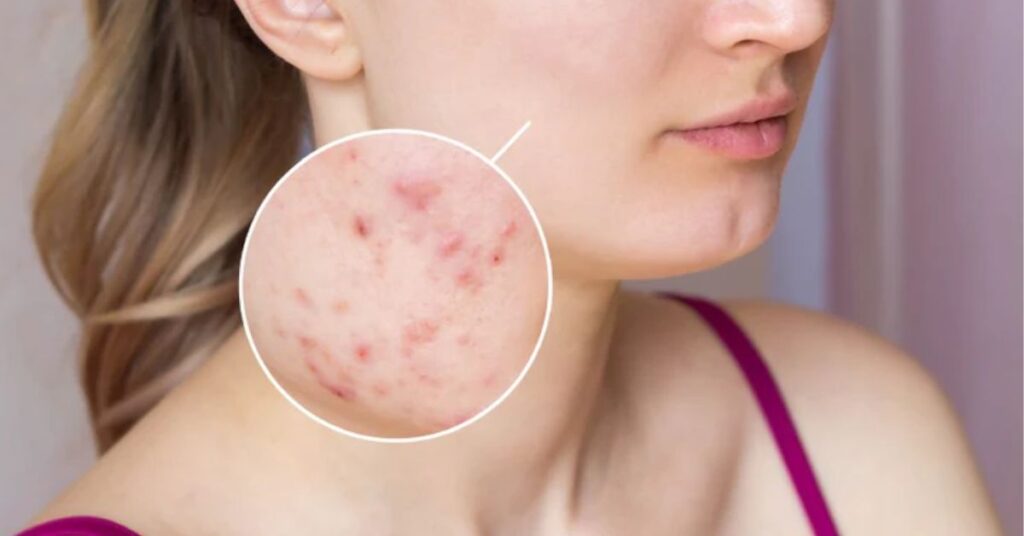How often should you exfoliate if you have sensitive skin? Exfoliation is a basic skincare technique that can help revitalize the skin by eliminating dead skin cells, enhancing texture, and encouraging a more radiant complexion. If you have sensitive skin, you should exfoliate once a week, or every seven to ten days if your skin is hypersensitive. You can increase to twice a week if your skin feels more resilient.
What is Exfoliation and Why is it Important?
As a skincare procedure, exfoliation eliminates dead skin cells from your skin’s outermost layer, exposing new, healthy skin beneath. The skin normally sheds dead cells on its own, but as we age or are exposed to certain environmental variables, such as the sun, this process may slow down and result in an accumulation of dead cells on the skin’s surface. Exfoliation speeds up this process and enhances the texture, look, and general health of the skin.
Exfoliation improves the skin in several ways, including:
- Enhance the tone and texture of your skin.
- Clear your pores to lower your chance of outbreaks.
- Increase the skincare products’ absorption
- Make the skin look younger and more glowing.
How Often Should You Exfoliate if You Have Sensitive Skin?
Exfoliation should only be done once or twice a week on sensitive skin. Gentle exfoliation is essential for sensitive skin because it is more likely to become irritated, red, and dry. Excessive exfoliation can erode the skin’s barrier, making it more sensitive and irritated.

1. Choose the Right Type of Exfoliant:
Because they are kinder to the skin, choose moderate AHAs like lactic acid or PHAs (polyhydroxy acids). Because they don’t penetrate deeply and function slowly, PHAs in particular are perfect for sensitive skin because they lower the chance of discomfort.
Natural enzyme-based exfoliants, such as those found in papaya or pineapple, offer mild exfoliation that is appropriate for skin types that are sensitive.
2. Avoid Physical Scrubs:
Large, rough-particle scrubs can be excessively abrasive, leading to irritation and microtears. If you must use a physical exfoliator, pick one made especially for delicate skin that has extremely fine, mild particles.
3. Follow with Moisturizer:
Use a moisturizing, fragrance-free moisturizer after exfoliating to help rebuild your skin’s moisture barrier and avoid irritation or dryness.
4. Monitor for Signs of Irritation:
Use a moisturizing, fragrance-free moisturizer after exfoliating to help rebuild your skin’s moisture barrier and avoid irritation or dryness.
5. Apply Sunscreen Daily:
Exfoliation may increase the skin’s sensitivity to sunlight. Use a broad-spectrum SPF of 30 or greater to shield your skin from UV rays.
Types of Exfoliants Suitable for Sensitive Skin
- Chemical Exfoliants: These include gentle acids that gently remove dead skin cells, such as lactic acid and polyhydroxy acids (PHAs). Compared to physical exfoliants, they are frequently more appropriate for delicate skin.
- Enzyme Exfoliants: Natural, mild exfoliants that are effective for sensitive skin are enzyme-based products made from fruits like papaya and pineapple.
- Physical Exfoliants: Steer clear of scrubs that contain large, coarse particles, such as walnut shells. To reduce irritation, use a mild, fine-grain scrub if you decide to exfoliate physically.
Best Exfoliating Products for Sensitive Skin

- Lactic Acid Serums: A moderate AHA that moisturizes while exfoliating, lactic acid is a suitable option for sensitive skin.
- PHA-based Products: PHAs exfoliate without irritating skin and are a kinder substitute for AHAs.
- Enzyme Masks: An enzyme mask applied once a week can provide a mild exfoliation that revitalizes delicate skin without being too harsh.
Signs You’re Over-Exfoliating Sensitive Skin
To keep your skin healthy, watch out for signs of over-exfoliation, such as:

- Constant sensitivity and redness
- Dryness and flakiness
- A constriction or a scorching feeling
- An increase in pimples or irritability
- Reduce how often you exfoliate and use softer products if you encounter any of these symptoms.
How to Exfoliate Sensitive Skin Safely
Choose the Right Product:
- Opt for Chemical or Enzyme Exfoliants: In general, chemical exfoliants that are mild for sensitive skin include lactic acid and polyhydroxy acids (PHAs). By dissolving dead skin cells without the need for washing, these substances reduce irritation.
- Look for Products Labeled for Sensitive Skin: Exfoliants made especially for sensitive skin are available from numerous companies. These cosmetics usually steer clear of harsh chemicals that could irritate skin and instead utilize gentle, calming ingredients.
2. Apply a Moisturizer After Exfoliating:
- Lock in Moisture: After exfoliation, it’s crucial to use a calming, fragrance-free moisturizer because exfoliation might remove some of the skin’s natural hydration. This preserves the skin’s natural barrier and helps to restore moisture.
- Repair the Skin Barrier: Seek moisturizers with relaxing components such as aloe vera, ceramides, or hyaluronic acid. These components aid in retaining moisture, minimizing possible irritation, and promoting the skin’s healing process.
3. Exfoliate in the Evening:
- Allows Time for Recovery: By exfoliating at night, you give your skin more time to recover and regenerate without being exposed to outside stresses. Your skin heals itself while you sleep, which lowers the chance of irritation.
- Minimizes Sun Exposure Risks: Additionally, exfoliating at night lowers the likelihood of quick exposure to UV rays, which can exacerbate skin sensitivity and result in sunburn if the skin has just exfoliated.
4. Use SPF Daily:
- Protect Sensitive Skin from Sun Damage: The skin becomes more susceptible to sun exposure after exfoliation, which increases the requirement for daily sun protection. The danger of sunburn and long-term damage can be decreased by protecting the skin from damaging UV rays using a broad-spectrum SPF of 30 or higher.
- Reapply Throughout the Day: To guarantee constant protection when you’re outside, especially the days after exfoliating, reapply sunscreen every two hours.
FAQs:
1. Can I use a facial scrub on sensitive skin?
To guarantee constant protection when you’re outside, especially the days after exfoliating, reapply sunscreen every two hours.
2. Should I exfoliate if I have active acne?
Exfoliating active acne is best avoided. Instead, search for gentle chemical exfoliants that do not require scrubbing to target breakouts.
3. What if my skin feels dry after exfoliating?
Sensitive skin frequently exhibits this. Always use a thick moisturizer after exfoliation to keep skin nourished and ease any irritation.
Conclusion:
How Often Should You Exfoliate If You Have Sensitive Skin? When done carefully and with the appropriate materials, exfoliating sensitive skin can have enormous benefits. You can safely enjoy softer, brighter skin without running the risk of irritation or injury by using light exfoliants, moisturizing after each session, exfoliating at night, and using sunscreen every day.


